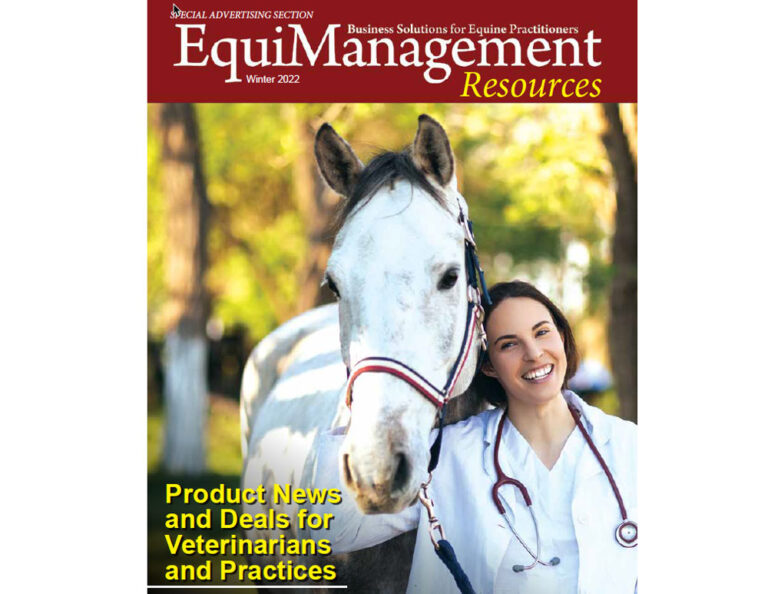
Many horse owners are convinced that feeding probiotics to their horses is good for the intestinal microbiome, and particularly useful when using anti-microbial drugs (AMDs). Despite the popularity of probiotic supplementation, there are potential detrimental effects to consider.
Antimicrobial Resistance Genes in Probiotics
A considerable concern about probiotics is the potential for commercial products with live organisms to carry antimicrobial resistance genes. This threat has already been identified in Europe, where for a probiotic product to be deemed safe for human or animal consumption, there must be an absence of acquired or potentially transferable resistance factors.
In a 2021 study by Baumgardner and Berreta, 50 products (developed for many animal species) were evaluated qualitatively for antimicrobial resistance (AMR) genes via DNA extraction and sequencing. Out of the 50 products, bacterial DNA was confirmed in 47. Of these 47, 94% had at least one AMR gene. Most frequently found were the AMR genes for tetracycline (68%) and sulfonamides (60%). Also of note is that seven of the eight AMR genes were identified in multiple products.
The authors stated that “there is no barrier preventing the transfer of AMR genes to the animal’s gastrointestinal microbiota which includes commensal, potentially pathogenic, and pathogenic bacteria.” They also stressed that in many cases probiotics are administered daily with AMR genetic material provided consistently to residential gastrointestinal microbiota.
Vancomycin A Resitance
In another study by the same authors, the resistance gene for vancomycin A was identified in two of 36 (6%) products containing Enterococcus spp. DNA. Due to important the public health significance of vancomycin resistance and unregulated use of probiotic products, this is very noteworthy, they said.
Harmful Responses to Probiotic Supplementation
Other studies of mouse and human intestinal microbiomes revealed that supplementation of probiotics with administration of broad-spectrum AMDs results in some less-than-favorable responses. This may or may not be applicable to equine intestinal health, but it does give food for thought.
Delayed Return to Indigenous Microbiome
Results of a 2018 study by Suez et al. demonstrated a tradeoff of delayed return to indigenous microbiome following antibiotic treatment supplemented with probiotics. The researchers identified a possible antagonistic activity of some probiotic species with lactic-acid bacteria. In contrast, use of aFMT (autologous fecal microbiome transplantation) or simply pursuing watchful waiting was better able to restore the microbiome. In essence, there is a potential for probiotics to hinder recovery of the microbiome after antimicrobial treatment.
The authors summarized: “Compared to spontaneous post-antibiotic recovery, probiotics induced a markedly delayed and persistently incomplete indigenous stool/mucosal microbiome reconstitution and host transcriptome recovery toward homeostatic configuration, while aFMT (autologous fecal microbiome transplantation) induced a rapid and near-complete recovery within days of administration.” They emphasized that the presumed probiotic-induced protection from antibiotic-associated adverse effects might not be risk-free.
Metabolic Concerns
In another 18-week study of humans with metabolic syndrome, some responded favorably to probiotic supplementation with improved blood pressure and lower triglycerides while others experienced poor glycemic control and higher glucose and insulin levels. In these cases, diet, which is more variable in people than in horses, might have been an influence—those eating higher sugar levels had better glycemic responses to supplementation with probiotics.
References
- Baumgardner, RM.; Berreta, A.; Kopper, JJ. Evaluation of commercial probiotics for antimicrobial resistance genes. Canadian Veterinary Journal 2021, vol. 62; pp. 379-383
- Berreta, A.; Baumgardner, RM.; Kopper, JJ. Evaluation of commercial veterinary probiotics containing enterococci for transferrable vancomycin resistance genes. BMC Res Notes 2020, vol 13:275; doi: 10.1186/s13104-020-05114-1
- Suez, J.; Zmora, N.; Zilberman-Schapira, G.; et al., 2018, Post-Antibiotic Gut Mucosal Microbiome Reconstitution is Impaired by Probiotics and Improved by Autologous FMT. Cell Sept 2018, vol. 174, pp.1406–1423; doi.org/10.1016/j.cell.2018.08.047
- Wastyk, HC.; Perelman, D.; Topf, M.; et al. Randomized controlled trial demonstrates response to a probiotic intervention for metabolic syndrome that may correspond to diet. Gut Microbes 2023, vol. 15, no. 1; doi:10.1080/19490976.2023.2178794
Related Reading
- Diet Effects on the Equine Microbiome
- Effects of Adding Rice Bran to the Equine Diet
- New Opinions Regarding Free Fecal Water Syndrome
Stay in the know! Sign up for EquiManagement’s FREE weekly newsletters to get the latest equine research, disease alerts, and vet practice updates delivered straight to your inbox.








